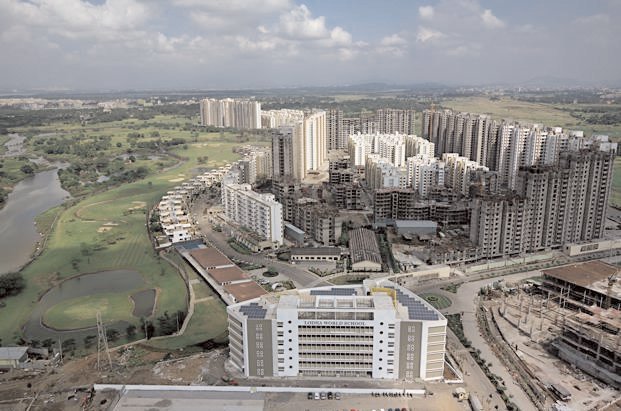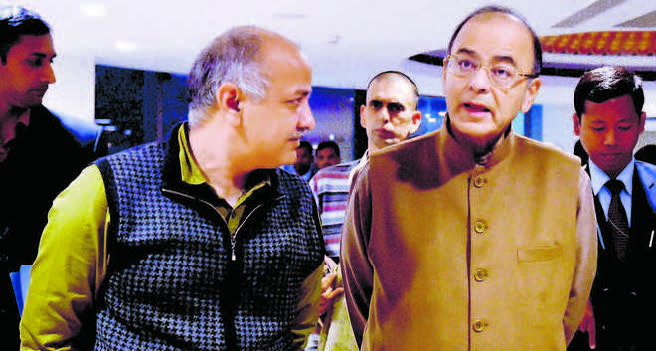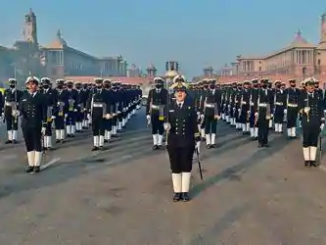
NEW DELHI (TIP): The union government on August 27 released the list of 98 cities that will be developed under the Smart Cities mission.
These cities together have a population of 13 crore, accounting for 35 per cent of India’s urban population. Names of two cities — one from Jammu and Kashmir and Uttar Pradesh each — are yet to be revealed. The metros with a population of over 50 lakh each on Smart Cities list include Chennai, Greater Hyderabad, Ahmedabad and Greater Mumbai. Some of the other important urban local bodies that have been included in the list are the New Delhi Municipal Council, Vishakhapatnam, Chandigarh, Surat, Kochi, Bhopal, Navi Mumbai, Thane, Bhubaneswar, Amritsar, Jaipur, Allahabad and Lucknow.
The Smart Cities mission, launched by PM Narendra Modi in June this year, will provide central funding of Rs 48,000 crore to the selected cities for improving their infrastructure and service delivery through application of better technology and e-governance.
Explaining the meaning of Smart Cities in an Indian context, Venkaiah Naidu, Minister for Urban Development, said that it would ensure robust IT connectivity and digitization as also core infrastructure such as water supply, electricity supply, sanitation, public transport, solid waste management and affordable housing. “We are not just aiming at making our urban landscape fanciful and flashy but the prime objective is to enhance quality of urban life,” he said.
He added that central government will immediately release Rs 2 crore to each of the cities for preparation of their smart city plans.
The state and urban local bodies have to provide a matching contribution of Rs 48,000 crore to each city for the five year mission. This is in addition to thousands of crores worth investments from the private sector which they will be allowed to recover through levy of user charges on say water supply or urban transport. “In a situation such as the recent financial crisis, when private firms are looking for safe investments, I assure them that Smart Cities are safe investment. The land is going to be readily available and the returns are assured,” he said.
According to the union government, twenty four cities on the list are industrial or business centres, 18 are cultural or tourism hubs, five are port cities and three are educational and heath care hubs and capital cities account for a quarter of total Smart Cities. However, nine state capitals have been left out of mission. These include Patna, Bengaluru, Trivandrum, Kolkata, Puducherry, Gangtok, Shimla, Daman, Itnanagar. All states and union territories were to send in their nominations according to the quota allotted to them by the centre by July 31st.
The quota was assigned based on the the number of statutory cities and towns in the state and its total population. Accordingly, UP had the highest allotment at 13 followed by Tamil Nadu at 12 and Maharashtra at 10. The smaller states, North eastern states and union territories mostly have only one smart city slot each. The J&K government has asked for more time to decide on whether the winter capital of Jammu or the summer capital of Srinagar should be their smart city candidate. The conflict-ridden state is allowed only one nomination to the mission after demands by the state government to allow for two was turned down by the Centre.
According to the ministry, both Jammu and Srinagar have similar scores in the grading system. The same is the case with Rae Bareli and Meerut both of which had a tie for the 13th position in Uttar Pradesh.
What is a ‘smart city’?
A city equipped with basic infrastructure to give a decent quality of life, a clean and sustainable environment through application of some smart solutions.
Basic infrastructure
Assured water and electricity supply, sanitation and solid waste management, efficient urban mobility and public transport, robust IT connectivity, e-governance and citizen participation, safety and security of citizens.
Smart solutions
Public information, grievance redressal, electronic service delivery, citizens’ engagement, waste to energy & fuel, waste to compost, 100%treatment of waste water, smart meters & management, monitoring water quality, renewable source of energy, efficient energy and green building, smart parking, intelligent traffic management system.
What’s the next step?
The next step is identification of the 100 cities and for this a city challenge competition to be conducted by Bloomberg Philanthropies is envisaged. The current plan looks to select 20 cities this year followed by 40 each in the next two years.





Be the first to comment